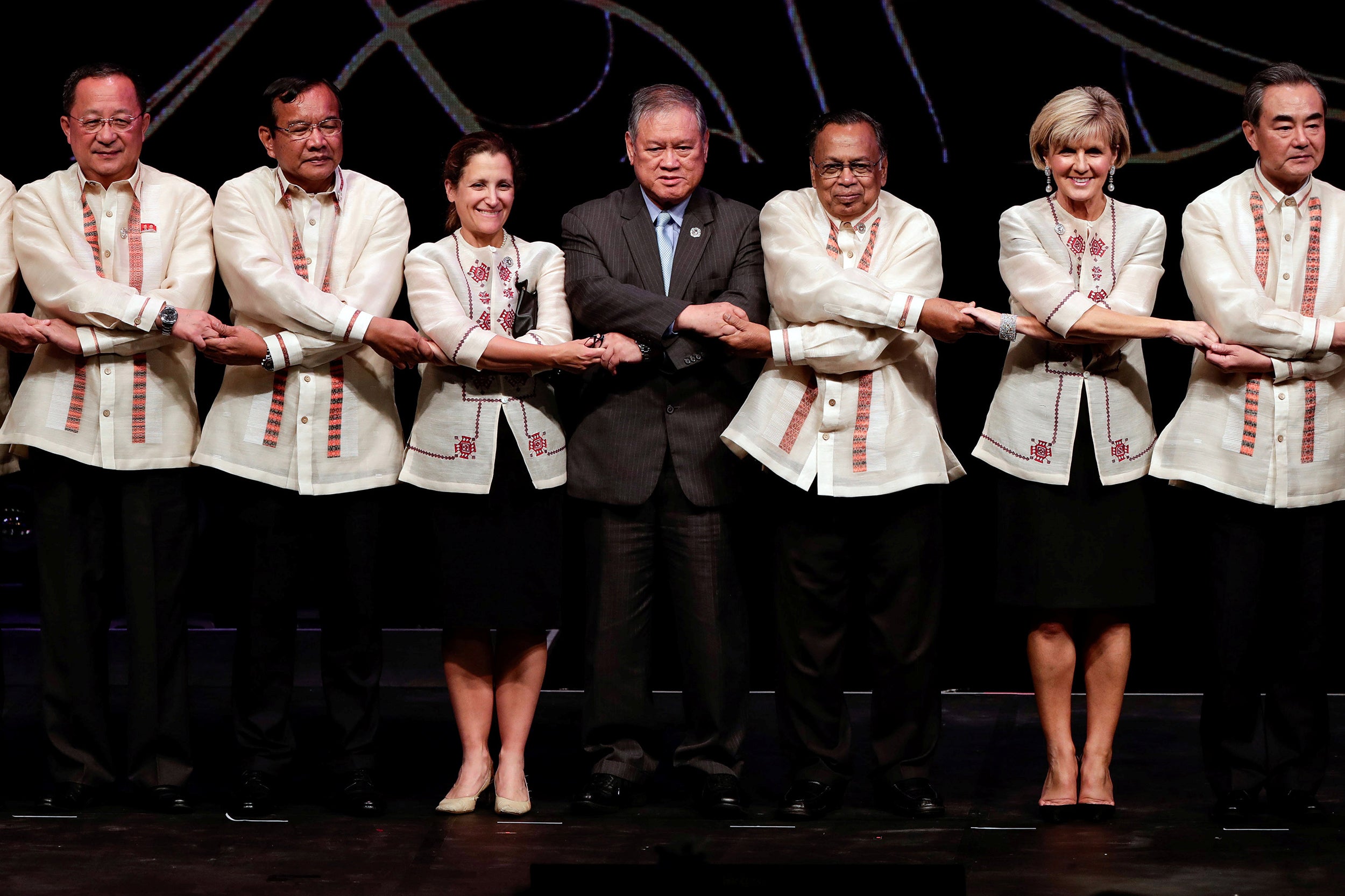The pressure on North Korea has intensified – but Trump shows no sign of being able to solve anything
Kim is winning this particular mini-Cold War

The contrast of styles could hardly be greater between the 44th and 45th presidents of the United States. Barack Obama’s graceful, cerebral, almost academic methods of governing have been violently replaced by the bombastic impulsive tweets of Donald Trump. The two men’s mutual antipathy is palpable. Yet, on substance and policy, the continuities are much greater than first they appear, and not simply because Donald Trump seems unable to get much through Congress. Nowhere is this truer than in America’s conundrum over North Korea.
Far from starting a war with Kim, either in the Twittersphere or in a real world stratospheric nuclear conflict, President Trump has continued his predecessor’s policy of international condemnation and ever harsher sanctions.
It is only fair to President Trump to point out that he has – albeit aided by the continuing defiance and successful tests carried out by Kim Jong-un – managed to intensify the pressure on North Korea. Where once Russia and China would cavil and abstain on a sanctions vote at the UN Security Council, keen to win some illusionary geopolitical advantage, they now join in. Where once Beijing preferred quiet diplomacy and stressed the lack of influence it had on Kim and his medallioned military gangsters, they now seem ready to speak out and to choke off his last major sources of foreign exchange – sales of coal northwards, and the “export of labour” (in reality forced labour camps set up in remote corners of China and Russia).
It is perfectly possible that, as with previous international sanctions against everyone from Mussolini to Milosevic to Mugabe, “entrepreneurs” and fellow rogue states will find ways of breaking them.
Iran, from the old “axis of evil”, springs to mind as one likely accomplice of North Korea now that President Trump has chosen, in this case, to reverse President Obama’s deal on Tehran’s nuclear ambitions. The lesson of international economic sanctions is that they seldom deliver a “knockout blow”, and the effect, if at all, is on the people of a country rather than the ruling elite, even with so-called smart sanctions. They take a long time to work, anyway, while Kim’s nuclear programme is progressing far more rapidly than the West’s spies expected (President Obama had told his successor that he thought Pyongyang could hit the continental United States with a missile by the end of Mr Trump’s first term).
In a leaked transcript of a call between President Trump and President Duterte of the Philippines, Mr Trump says: “We can’t let a madman with nuclear weapons on the loose like that. We have a lot of firepower, more than he has, times 20 – but we don’t want to use it.”
He summed up the strategic dilemma facing the US, its allies and indeed the whole world very well. This published evidence that the US is unwilling to use military force is, however, damaging to the situation, and will only serve to encourage Kim to loose off yet more missiles and detonate more warheads with impunity.
It also betrays a mistake in Mr Trump’s assessment of Kim’s mentality. For, as Mr Trump’s own remarks show, Kim is pursuing a perfectly rational course of self-preservation. By acquiring nuclear weapons, as well as his vast arsenal of conventional armaments within 35 miles of Seoul, he has become, in effect, untouchable.
Kim and his clique have observed the fate of those perceived by the US as weak – those who did not build up a sufficiently threatening arsenal, such as Saddam, Gaddafi and Assad – and drawn the logical conclusion. When the US Secretary of State, Rex Tillerson, a few days ago declared that America was not seeking “regime change” in the so-called Democratic People’s Republic of Korea, that spoke to Kim’s innermost insecurities, though it would hardly have convinced him that America was sincerely happy to see him carry on forever.
There is a germ of something there, though, in Mr Tillerson’s signal. The key is to find a demonstrable “bankable” way for America to convince Kim that he can continue his dynastic regime in peace – and without nuclear weapons. Such a formula does not readily present itself.
No matter how much South Korea, Japan, the Philippines, Australia and other regional powers are directly threatened, no matter how nervous China and Russia must be about their unstable neighbour, and no matter how angry and exasperated Donald Trump may grow, these are the fundamental facts, and, unless sanctions induce Kim to change his mind – and why would they? – they will remain so. Kim is winning this particular mini-Cold War, and President Trump is in a no better position to win it than any of his immediate predecessors. Back to the golf course.

Join our commenting forum
Join thought-provoking conversations, follow other Independent readers and see their replies